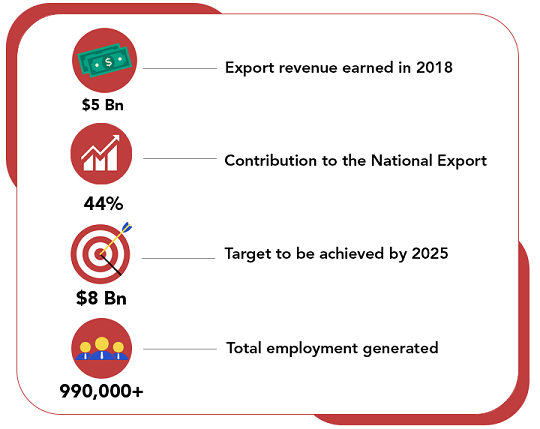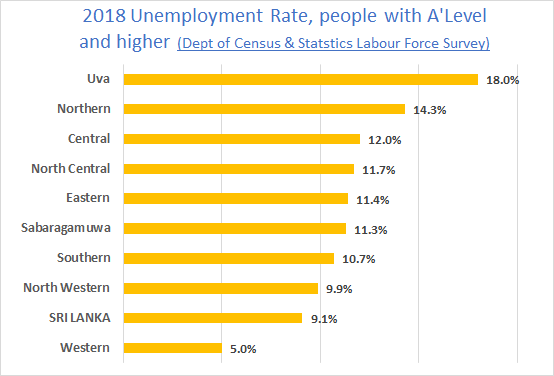By Jekhan Aruliah
Jack Ma, the billionaire founder of the Alibaba platform described as “the leading platform for global wholesale trade”, gave some excellent advice for entrepreneurs. Ma said “If you want to be successful, learn from the other people’s mistakes, don’t learn from their success stories.”
We in Jaffna every now and then are visited by successful entrepreneurs who take the tedious trip North to tell us their success stories. Like all good stories they go from scary to happy. They start with the guy/gal taking a chance on a business; everyone tells them to give up; stuff goes tragi-comically wrong; by determination and luck and skill eventually they reap great success. We all knew it would succeed in the end because the story is told by a successful entrepreneur. Before COVID-19 these tycoons had to spend hours travelling to Jaffna. Now the internet is full of ZOOM seminars with a planet full of successful entrepreneurs telling their success stories across continents from the comfort of their own homes.

When Jack Ma said “learn from other people’s mistakes”, it is not enough to simply listen or read embellished humorous stories of mistakes being told months and years after the mistakes actually happened. You need to actually be there when the mistakes are happening. You need to be in the team watching how the team leader copes with things going wrong. How she fixes her own and other peoples’ mistakes. Experience how the team leader manages her staff her suppliers her bosses and her clients. Ma said “When you are 20 to 30 years old, you should follow a good boss [and] join a good company to learn how to do things properly”, he meant you have to actually be there as the mistakes happen. The “good boss” isn’t good because she doesn’t make mistakes, but because she knows how to deal with them. This is how you learn how to do things properly.
Join a good fast moving company and learn how it becomes stronger by conjuring success out of mistakes. Learn how to deal with bad news, how to contain damage, how to pivot, learn how to buy time, how to wriggle out of a hole, how to deflect anger, learn what a client will forgive and what he won’t, and learn not to despair.
A “good company” isn’t a company that gets everything right. A good company has the cash and the resilience to make mistakes, and it has customers and suppliers and staff and other stakeholders who will stick with it despite those mistakes. They stick with it because all these stakeholders have faith that the good company knows what it is doing and trust they will all succeed in the end. A good company survives the mistakes and becomes stronger, following the saying “what doesn’t kill you makes you stronger”.
For Jaffna to become a thriving, growing, evolving economic centre it needs more good companies here in Jaffna. Good companies with momentum (with substance and speed), pushing the boundaries, making mistakes, and winning through to success. There are a small number here in the North, but we need many more. Enough to create a new work ethic and an aspirational community that hardly exists here now. Homegrown “good companies” will not grow in Jaffna fast enough. They have to be brought to Jaffna from outside.
So how do we achieve this? Remember the “200 Garment Factory” initiative.

In 1992 the then government’s “200 Garment Factory” programme forced the major garment manufacturers to setup factories beyond Colombo and Gampaha. By threats and enticements including providing costly infrastructure, the then government forced the garment industry up and out to become one of our biggest foreign currency earners. We see the benefits in the Northern Province with several factories owned by the premier Sri Lankan manufacturers. A couple of years ago I visited a huge impressive modern factory sending expensive high class lingerie to the sophisticated ladies of Paris and Milan, stitched by the nimble fingers of thousands of rural ladies in Vavuniya. According to the Board of Investment (BOI) the Garment Industry earned US$5 billion in 2018 and creates jobs directly and indirectly for hundreds and thousands of our citizens.
In more recent years governments have had a policy of pulling our population and our economy into a Western Province Megalopolis. Already with the highest population density in Sri Lanka, the Megalopolis plan envisages large scale migration from the other provinces into this Megalopolis looking for jobs. If the COVID-19 Pandemic, with all its curfews and self distancing, showed one thing it is high density populations are not a great idea.
Sri Lanka’s government should repeat the 200 Garment initiative in other private sector domains including high value professional services. The government should caress and cajole other promising industries out of the Western Province into the North and into all the other provinces. 30 years ago the government could have setup government owned garment factories but was too smart and well advised. Instead the private sector was forcefully pushed out there across the country.
No Action, Talk Only
In recent years there has been much talk but no action. In 2017 the government promised a Rs1 billion “vertical building” for the North, which would be mixed purpose offices, shops and apartments. This titanic edifice is conspicuously not there. The Budget Speech of that year stated “Honorable Speaker, to facilitate private businesses to expand their operations to the Northern Province we will construct a Vertical Building for mixed development which will include office space, recreational facilities, and entertainment facilities. I propose to allocate Rs. 1,000 million for this purpose.”
More recently a proposal won Indian approval and a sizeable grant to create a large IT/BPO centre in Jaffna together with a strategy to draw in established companies from Colombo and overseas. In March 2020 the government put out a tender offering the Indian money to create this IT/BPO centre with 40,000 square feet and 400+ workstations. Three months later, in June 2020 this first tender had been withdrawn and a new one put out to spend 50% of the Indian grant on a mere 5,400 square foot “maker space” type premises with merely 20 computers, a couple of 3D printers and stuff like that! The original proposal aimed to bring in good companies with good bosses from Colombo and beyond, the second one won’t.
The Northern Province has the second highest unemployment rate among highly qualified people. Statistically “unemployed” only includes those looking for a job, not including people who don’t want a job. So this figure illustrates the lack of opportunity for those with the discipline and ambition to stick to their studies who search for but cannot find decent employment.

London, New York, and Colombo have many good fast moving companies where young people can work and watch at close quarters and be part of and learn from mistakes and their resolutions. With this experience they can go on to build their own good fast moving companies. Jaffna, and many other towns and cities outside Colombo, has hardly any companies like these. In Jaffna there are some good companies timidly tiptoeing beyond their comfort zones, but extremely few good companies with speed and ambition.
Creating Momentum and Aspiration
Creating momentum is not done by evangelical entrepreneurs simply flying in for a half day rousing seminar, and flying out again. As Jack Ma said, you don’t learn by listening to other peoples’ success stories. These evangelical entrepreneurs are very valuable in the right space. They are like fitness coaches providing a limited but important part of the rigorous regimen lifting athletes to greater heights. Entrepreneurially Jaffna is not an athlete looking to scale further heights. Jaffna is a patient recovering from a heart attack in need of “tough love” and firm handholding.
Creating momentum is about experienced people coming to Jaffna and staying here for months at a time or even permanently. A few are doing this. I myself know a handful from California, New York, Toronto, Melbourne, Singapore, and London. Some of these people are returning having fled the Sri Lankan Civil War to other countries as children decades ago where they grew up and had careers in good companies working for good bosses learning by making and overcoming great mistakes. Some are returning having spent a few years overseas or in Colombo, gaining experience with good companies in places like Singapore. This is happening, but too few, too small, and too slowly.
What Jack Ma describes as “good companies” with “good bosses” coming to the North would be a great thing by itself creating good jobs. But more importantly, they would give the opportunity to Northerners in the North to learn from mistakes, learn good attitude, strong work ethic and light the fuse of aspiration. They would create a generation that can go forward to create great companies of their own based in the North. Kicking off a virtuous cycle on which the North can rise to its true potential, providing a much needed boost to the whole Sri Lankan economy.
( — The writer Jekhan Aruliah was born in Sri Lanka and moved with his family to the UK when he was two years of age. Brought up in London, he graduated from Cambridge University in 1986 with a degree in Natural Sciences. Jekhan then spent over two decades in the IT industry, for half of which he was managing offshore software development for British companies in Colombo and in Gurgaon (India). In 2015 Jekhan decided to move to Jaffna where he is now involved in social and economic projects. He can be contacted at jekhanaruliah@gmail.com — )

